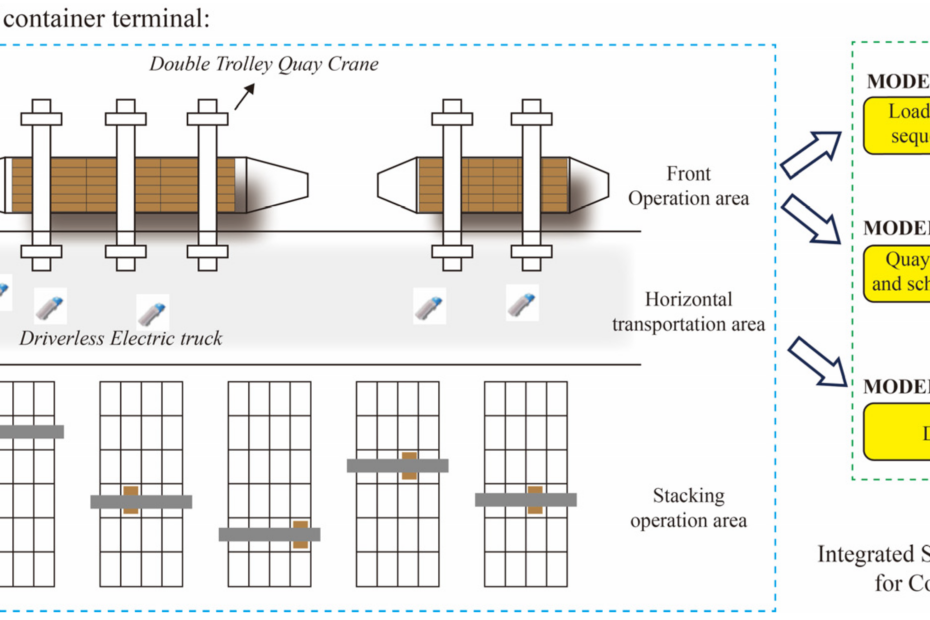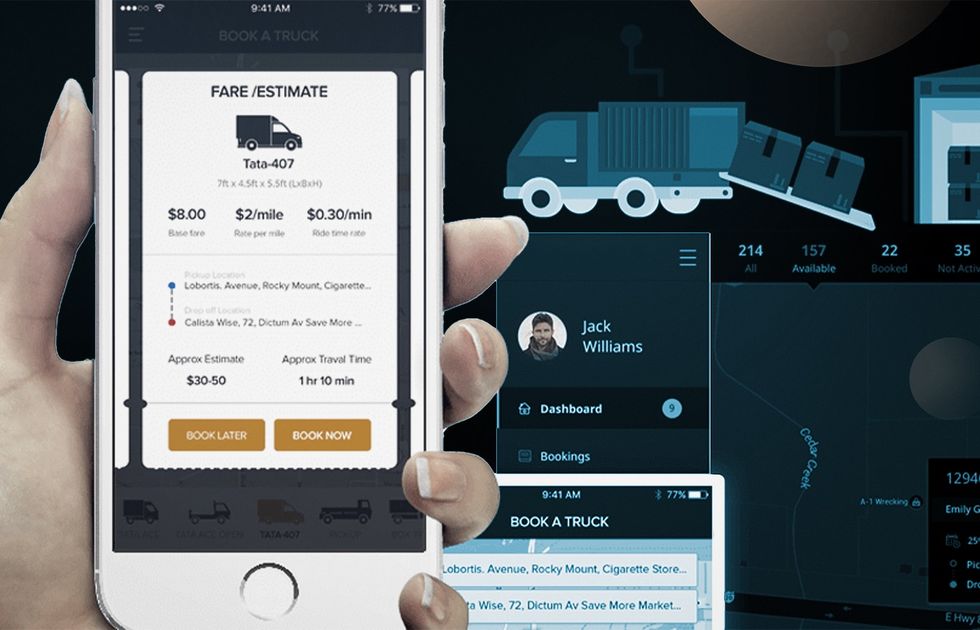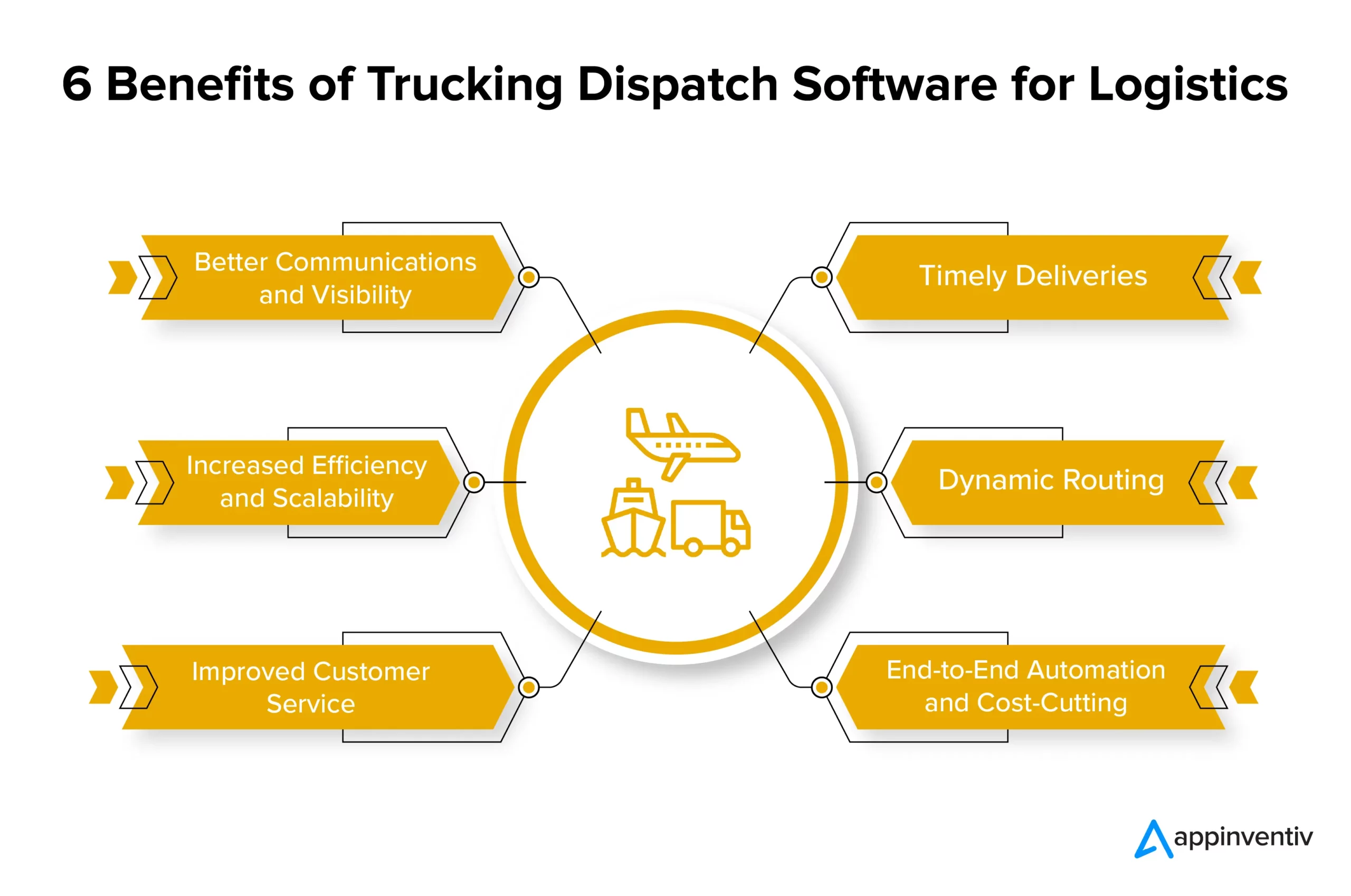Integrating trucking dispatch software with load optimization systems significantly boosts cost savings and productivity. This combination streamlines operations, optimizes routes, reduces fuel wastage, and maximizes truck utilization, resulting in significant cost reductions and improved overall efficiency.
By automating processes such as load planning and scheduling, the software minimizes operational inefficiencies and human error, increasing productivity and saving time. With reduced delivery delays and improved on-time performance, businesses can enhance their efficiency and customer satisfaction. The integration of trucking dispatch software with load optimization systems is essential for companies looking to optimize their transportation operations, reduce costs, and improve productivity.

Credit: www.mdpi.com
Understanding Trucking Dispatch Software
Integrating trucking dispatch software with load optimization systems brings significant cost savings and boosts productivity by reducing operational costs through route optimization, fuel minimization, and maximizing truck utilization. By automating processes such as load tracking and scheduling, the software eliminates inefficiencies and human error, enhancing overall logistics operations.
Definition Of Trucking Dispatch Software
Trucking dispatch software is a digital solution designed to help managers track and schedule their truck drivers’ shifts, plan their routes, and track their journeys while collecting valuable data to optimize future routes.
Functions Of Trucking Dispatch Software
Trucking dispatch software serves multiple functions that contribute to improved cost savings and productivity for trucking companies:
- Route Optimization: By analyzing factors like traffic, road conditions, and distance, this software determines the most efficient routes for trucks to follow, minimizing fuel wastage and reducing operational costs.
- Load Management: Dispatch software enables effective load management by providing real-time updates on available loads, matching them with appropriate trucks, and ensuring maximum truck utilization. This eliminates empty or underutilized trips, thus optimizing resources and reducing expenses.
- Scheduling and Dispatching: With dispatch software, managers can create optimized schedules for drivers, considering factors like driver availability, delivery deadlines, and route efficiency. This leads to improved time management, reduced idle times, and enhanced overall productivity.
- Real-Time Tracking: The software allows for the real-time tracking of trucks, providing managers with accurate location information. This enables quicker response times to any issues or delays, effective communication with drivers, and the ability to make necessary adjustments to routes or schedules.
- Data Analysis and Reporting: Trucking dispatch software collects valuable data on driver performance, route efficiency, fuel consumption, and other key metrics. This data can be analyzed to identify areas for improvement, optimize operations, and make data-driven decisions for cost savings and increased productivity.
By leveraging these functions, trucking dispatch software plays a crucial role in streamlining operations, minimizing costs, and maximizing productivity for trucking companies.
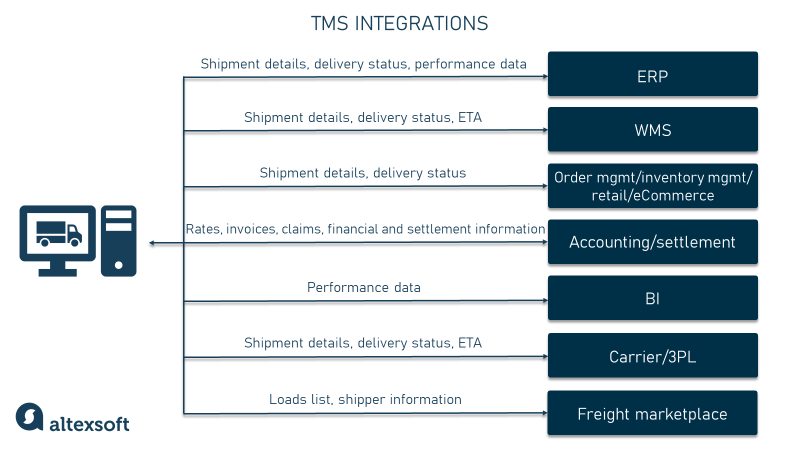
Credit: www.altexsoft.com
The Benefits Of Load Optimization Systems
A load optimization system is a valuable tool for trucking companies to streamline their operations and maximize efficiency. By integrating trucking dispatch software with load optimization systems, companies can experience various benefits that lead to cost savings and increased productivity. Let’s explore some of these benefits:
Reduced Operational Costs
Load optimization systems contribute to reducing operational costs in multiple ways. Firstly, the system optimizes routes, ensuring that trucks take the most efficient path to their destinations. As a result, fuel wastage is minimized, leading to significant savings over time. Additionally, the software considers factors such as traffic and road conditions to create accurate delivery schedules, reducing idle times and maximizing truck utilization. By minimizing fuel consumption and idle time, companies can lower their overall operational costs and improve their bottom line.
Maximized Truck Utilization
Load optimization systems help maximize truck utilization, ensuring that trucks are operating at their full capacity. By analyzing data such as load weight, volume, and destination, the software determines the most efficient way to load and distribute goods. This data-driven approach allows companies to make better use of their fleet and avoid unnecessary trips or underutilized trucks. With optimized truck utilization, companies can increase their productivity and save costs by reducing the number of trips required to deliver goods.
Optimized Routes For Fuel Efficiency
Fuel is a significant expense for trucking companies, and load optimization systems can help optimize routes for fuel efficiency. The software considers various factors such as distance, traffic patterns, and fuel prices to create routes that minimize fuel consumption. By taking the most fuel-efficient routes, companies can save on fuel costs and reduce their environmental impact. This not only leads to cost savings but also enhances sustainability efforts, which is becoming increasingly important in today’s business landscape.
In conclusion, integrating trucking dispatch software with load optimization systems provides numerous benefits for trucking companies. With reduced operational costs, maximized truck utilization, and optimized routes for fuel efficiency, companies can significantly improve their cost savings, increase productivity, and enhance their overall competitiveness in the industry.
The Impact Of Integrating Trucking Dispatch Software And Load Optimization Systems
Integrating trucking dispatch software with load optimization systems can have a profound impact on cost savings and productivity for transportation companies. By leveraging these technologies together, companies can streamline their operations, reduce expenses, and maximize efficiency. In this article, we will explore the specific benefits of integrating trucking dispatch software with load optimization systems.
Increased Cost Savings
One of the key advantages of integrating trucking dispatch software with load optimization systems is the significant cost savings that can be achieved. By optimizing routes and load assignments, companies can minimize fuel wastage and reduce idle times. This leads to lower fuel costs and increased efficiency, resulting in considerable savings over time. Moreover, ensuring maximum truck utilization helps to avoid unnecessary expenses associated with underutilized vehicles.
Improved Productivity
Integrating trucking dispatch software with load optimization systems can greatly enhance productivity within transportation companies. With the ability to track and schedule driver shifts, plan routes, and collect valuable data, managers can make informed decisions to optimize future routes and allocate resources effectively. By automating these processes, the software minimizes human error and reduces operational inefficiencies, allowing teams to focus on core tasks and increase overall productivity.
Streamlined Operations
Another significant advantage of integrating trucking dispatch software with load optimization systems is the streamlining of operations. Leveraging route, load, and space optimization helps to enhance operational efficiency and reduce costs. By efficiently allocating resources, companies can minimize fuel consumption, reduce idle time, and improve customer satisfaction. Additionally, automated scheduling and dispatching processes reduce administrative burdens, enabling teams to work more efficiently and effectively.
In conclusion, integrating trucking dispatch software with load optimization systems has a profound impact on cost savings and productivity for transportation companies. By increasing cost savings, improving productivity, and streamlining operations, companies can achieve significant efficiency gains and improve their bottom line. The seamless integration of these technologies is essential for modern businesses looking to stay competitive in the fast-paced world of transportation.
Case Studies: Real World Examples
Integrating trucking dispatch software with load optimization systems has a significant impact on cost savings and productivity. This combination optimizes routes, reduces fuel wastage, minimizes idle times, and ensures maximum truck utilization, resulting in significant savings for companies.
Real-world case studies provide valuable insights into the impact of integrating trucking dispatch software with load optimization systems on cost savings and productivity. Let’s take a look at two companies that have experienced significant improvements in their operations through the use of this technology.
Company A: Cost Savings And Productivity Improvements
In Company A, the implementation of trucking dispatch software with load optimization systems resulted in remarkable cost savings and productivity improvements. The software optimized routes, minimizing fuel wastage and reducing idle times. This led to a significant reduction in operational costs while ensuring maximum truck utilization.
By automating processes and streamlining operations, the software eliminated the need for manual planning and reduced human error. The company experienced greater efficiency in load management, resulting in shorter delivery times and improved customer satisfaction.
Overall, the integration of trucking dispatch software with load optimization systems helped Company A achieve substantial cost savings while enhancing productivity across its logistics operations.
Company B: Streamlined Operations And Customer Satisfaction
Company B faced challenges in managing its trucking operations efficiently, leading to inefficiencies, higher costs, and decreased customer satisfaction. However, with the integration of trucking dispatch software and load optimization systems, the company experienced remarkable improvements in its operations.
The software provided a centralized platform for comprehensive route planning, load management, and optimized truck utilization. By leveraging these capabilities, Company B was able to streamline its operations and reduce costs by minimizing fuel consumption and idle time.
The improved efficiency also had a direct impact on customer satisfaction. With optimized routes and more accurate delivery estimates, Company B enhanced its service reliability, resulting in higher customer retention and increased business opportunities.
In conclusion, the integration of trucking dispatch software with load optimization systems proved to be a game-changer for Company B, contributing to streamlined operations, significant cost savings, and improved customer satisfaction.
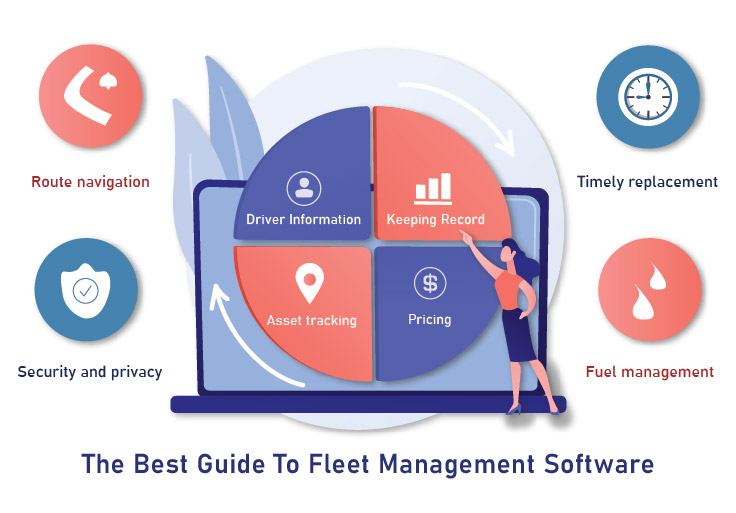
Credit: www.fleetroot.com
Frequently Asked Questions For The Impact Of Integrating Trucking Dispatch Software With Load Optimization Systems On Cost Savings And Productivity
Why Is Transportation Optimization Important?
Transportation optimization is important because it reduces operational costs, minimizes fuel wastage, reduces idle times, and ensures maximum truck utilization. This leads to significant cost savings and improves overall productivity.
What Is Trucking Dispatch Software?
Trucking dispatch software is a digital solution that helps managers track and schedule truck drivers’ shifts, plan routes, and collect valuable data to optimize future routes. It reduces operational costs by optimizing routes, minimizing fuel wastage, reducing idle times, and ensuring maximum truck utilization.
Q: How Does Integrating Trucking Dispatch Software With Load Optimization Systems Impact Cost Savings?
A: Integrating trucking dispatch software with load optimization systems can lead to significant cost savings by optimizing routes, minimizing fuel wastage, reducing idle times, and ensuring maximum truck utilization. These savings can greatly improve the company’s bottom line over time.
Q: What Are The Benefits Of Integrating Trucking Dispatch Software With Load Optimization Systems?
A: Integrating trucking dispatch software with load optimization systems can lead to several benefits such as reducing operational costs, improving efficiency, minimizing human error, increasing overall productivity, and automating processes like load scheduling and tracking.
Conclusion
Integrating trucking dispatch software with load optimization systems has a significant impact on cost savings and productivity. By optimizing routes, minimizing fuel wastage, reducing idle times, and ensuring maximum truck utilization, operational costs are reduced, leading to improved bottom-line results.
This combination streamlines processes, minimizes human errors, and increases overall productivity, resulting in higher efficiency and customer satisfaction. By leveraging route, load, and space optimization, transportation companies can achieve substantial cost savings and fuel efficiency, ultimately enhancing their overall operations.
